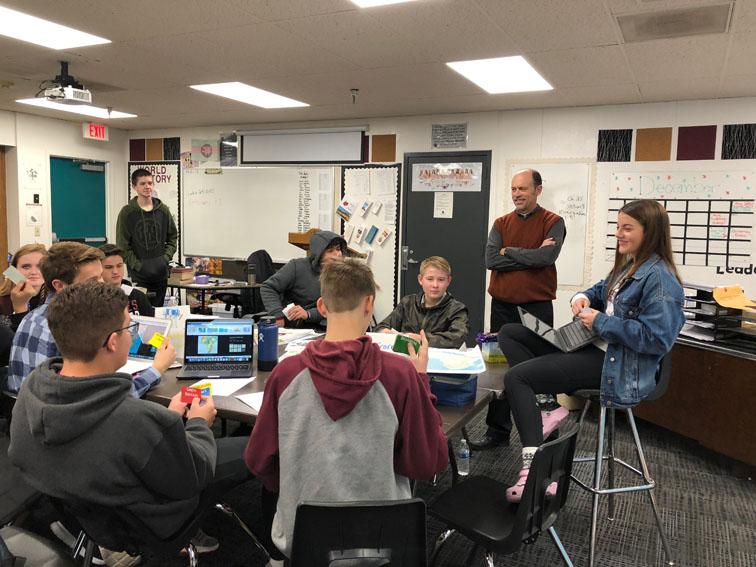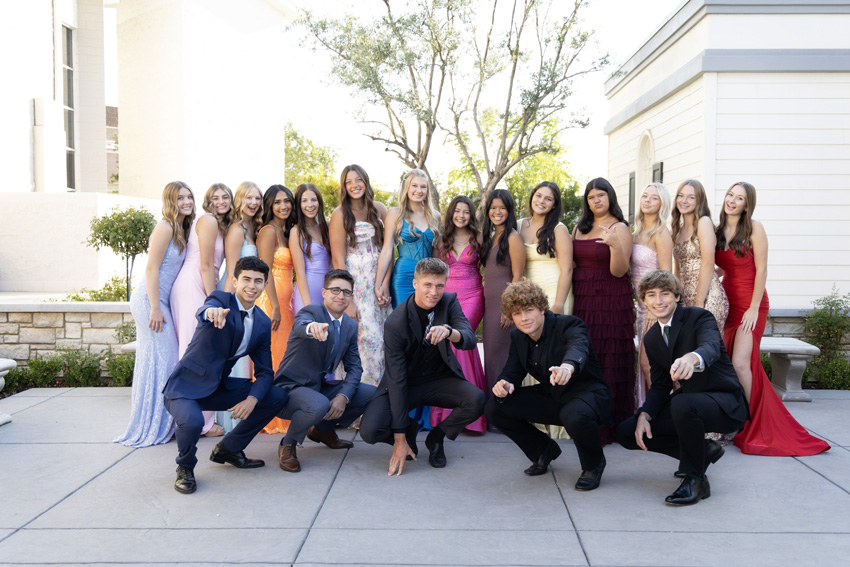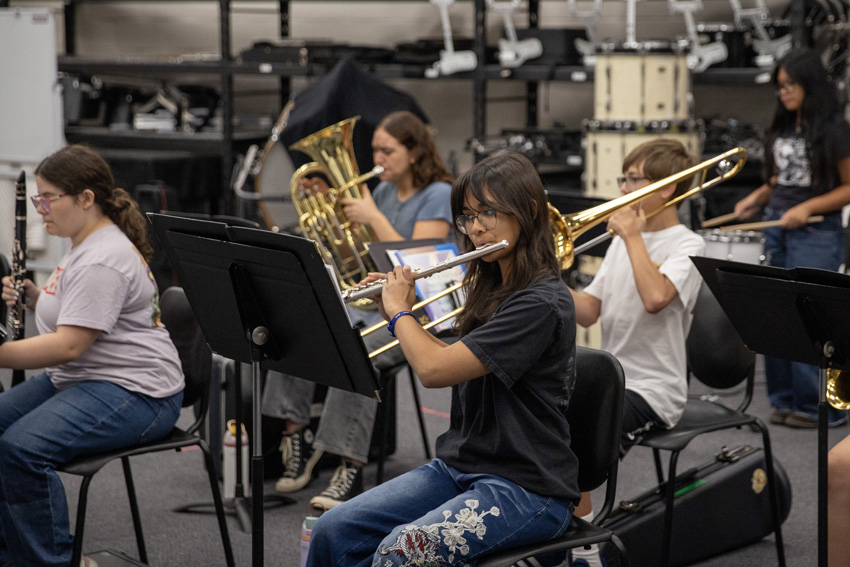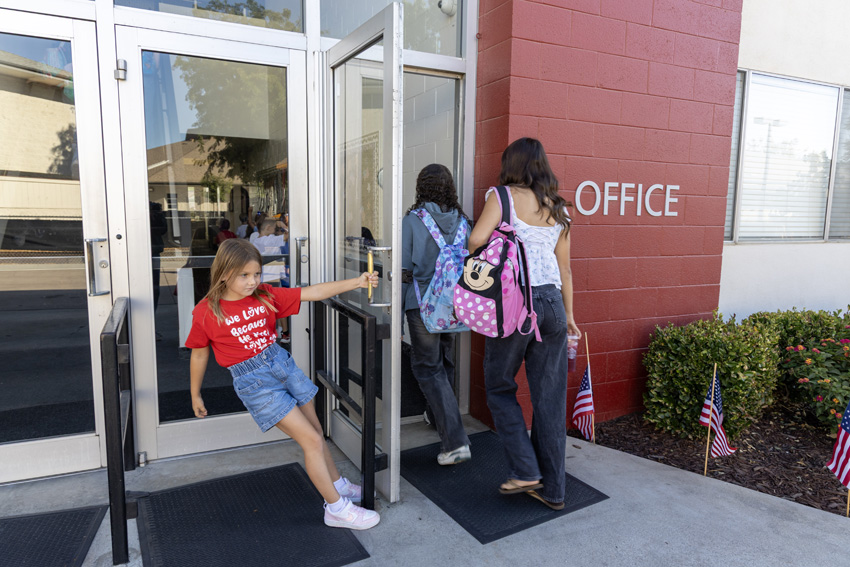Students partition Africa in annual historical reenactment
A room full of discussion, reason and debate. The world history classroom takes its 20th annual Berlin Conference activity Nov. 12-13, studying imperialism’s effect on Africa. Students are challenged to debate over why they need certain countries in Africa for resources to supply their country’s needs.

This activity begins with each ambassador presenting a rule to the table on what they are allowed to do. For example they must present all their reasons for wanting the country, or they can’t obtain five or more countries which creates a monopoly.
Afer the rules they begin to negotiate which country they need depending on the resource it provides. The eight countries then vote on which country presented the better reason to why they need it.
If the countries tie in votes it goes into a game of rock, paper, scissors with the winner receiving the country. The loser then gives one of the countries they own to the winner.
Teaching his 20th year at FCS, world history teacher Robert Foshee hopes to teach students a deeper understanding on how the Berlin Conference worked.
“We’ve learned a lot about the Industrial Revolution and from that the countries that were scrambling to get more resources,” Foshee said. “It was more of the downfalls of that is they went to Africa to take. This activity reflects the countries from Europe that aimed to take over land from places in Africa in order to gain the resources from there.
“Students are meeting those objectives by becoming ambassadors for a country that attended the conference,” Foshee continued, “learning about the lands they sought, trying to gain possession of those lands and at the end debriefing their findings.”
Robert Foshee gives details on the Berlin Conference activity in world history in the following podcast.
Victoria Topjian, ’22, enjoyed debating and arguing with her peers on what countries she hoped to conquer.
“We’re picking out countries and debating on them,” Topjian said. “We get to debate, and we get to bring stuff from the countries, that was one of my favorite things about this activity.”

Freshman Zach Aguirre represented Portugal during the reenactment of the Berlin Conference. His favorite part was participating with his friends in debates and voting for what country gets what.
“I think this activity is about everyone getting together as friends,” Aguirre said. “Just having a friendly competition about who gets what country in Africa. It’s just fun to fight over countries with your friends.”
Each ambassador of each country is allowed to bring an item or food to represent their country for extra credit.
Freshman Natalie Johnson appreciated the different items and foods her peers brought to represent their country.
“This activity was about the Berlin conference taking place with all the European countries,” Johnson said. “I was France and I bought french bread; it was fun to see what everyone brought from their countries and eating.”
Robert Foshee’s world history class discusses dividing Africa, as they represent different European countries in their reenactment of the Berlin Conference. @fresnochristian #thefeather pic.twitter.com/BrK5flrPNl
— The Feather Online (@thefeather) December 14, 2018
Max Hinton, ‘22, represented Germany, the country which hosted the conference. Hinton enjoyed learning more about Germany during this time period and which countries in Africa they needed as resources.
“It’s basically during the time period that we’re learning,” Hinton said. “All the countries in Europe were industrializing so they went to imperialism. So it’s just meeting together and dividing up Africa for all the European powers.”
Representing the Netherlands during this activity Edward Fikse, ’22, brought troop waffles from his country. His favorite part of the activity is discussing who gets what land and why.
“It’s about recreating the Berlin Conference,” Fikse said. “By dividing countries into groups and trying to convince others to let you take over land in Africa. I enjoyed the discussion with others as we tried to split the land of Africa”
With this activity students learn about the Berlin Conference, and helps students to understand the growing movement of nationalism in the late 1800s.
Kyler Garza can be reached via email.
For more articles read, Superintendent Jermey Brown Strives to advanced FC campus, or Editorial: Compete with peers, avoid comparison.




